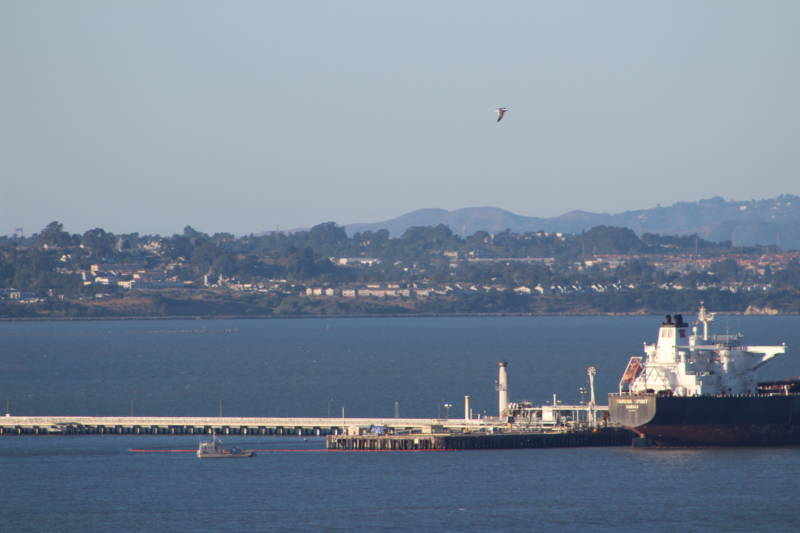Phillips 66 says tests of equipment at the refinery dock showed no problems.
After the oil sheen was discovered, the refinery told the operators of the Yamuna Spirit to stop transfer operations, according to company spokesman Paul Adler.
"Phillips 66 subsequently tested the refinery's dock transfer piping," Adler said. "The tests were observed by several federal, state and local government agencies and there was no evidence of leakage from Phillips 66 piping and connections."
Phillips 66 shut down its marine terminal at the beginning of the investigation. A week later, it reopened the facility and allowed the Yamuna Spirit to depart.
Teekay Shipping, the Yamuna Spirit's owner, also disputes the suggestion its ship was responsible for the spill.
"After extensive investigation and a successful completion of discharge, there is no evidence that the oil sheen originated from the Yamuna Spirit," said company officials in an emailed statement.
"As part of the investigation, we conducted a full underwater survey of the hull, which confirmed complete integrity of the hull and not a source of any leak," the company said. "Additionally, we fully pressure-tested the cargo lines as well as other systems and found no leaks."
Local environmentalists say there should have been better oil transfer procedures in place at the refinery.
"Whether or not the oil spill that took place during oil transfer operations at Phillips 66 was the fault of refinery staff or the shipping company hired to transport its oil is irrelevant," said Ian Wren, a staff scientist at Baykeeper, an organization that works to stop pollution in San Francisco Bay.
"Phillips 66 should be expected to take full responsibility for this spill and any others that take place under its authority," Wren said.
The Coast Guard is in the process of tallying up the cost of responding to the spill, Lt. Mervar said. That information will be submitted to the agency's National Pollution Funds Center, which will then issue a "notice of liability" to Phillips 66 and Teekay Shipping with the amount of money each is expected to pay.
Federal and state officials have not determined how much oil spilled in the bay.
The Coast Guard investigation did not conclude whether the spill caused an odor that sickened dozens of Vallejo residents at around the same time the oil was discovered in the water.
A state probe is still ongoing, according to Aubrey Henry, spokesman for the Office of Spill Prevention and Response at the California Department of Fish and Wildlife.
Meantime, Randy Sawyer, the chief environmental health and hazardous materials officer for Contra Costa Health Services, said his office plans to discuss the incident with the refinery.
"We will follow up with Phillips 66 on what they are doing to prevent an incident such as this from occurring in the future," Sawyer said.

